Basic subtraction skills Addition & Subtraction Worksheets for Ages 5-8
8 filtered results
-
From - To
Help your child master subtraction with our "Basic Subtraction Skills" worksheets designed for ages 5-8. These engaging, educational resources will deepen understanding and build confidence in young learners. Our worksheets encompass a variety of subtraction problems tailored to their developmental stages, from single-digit subtraction to more complex problems, ensuring gradual and effective learning. Through colorful illustrations and fun exercises, your child will enjoy learning while developing essential math skills. Perfect for homeschooling or supplemental practice, navigate the path to subtraction success with Kids Academy. Start now to build a strong math foundation early!
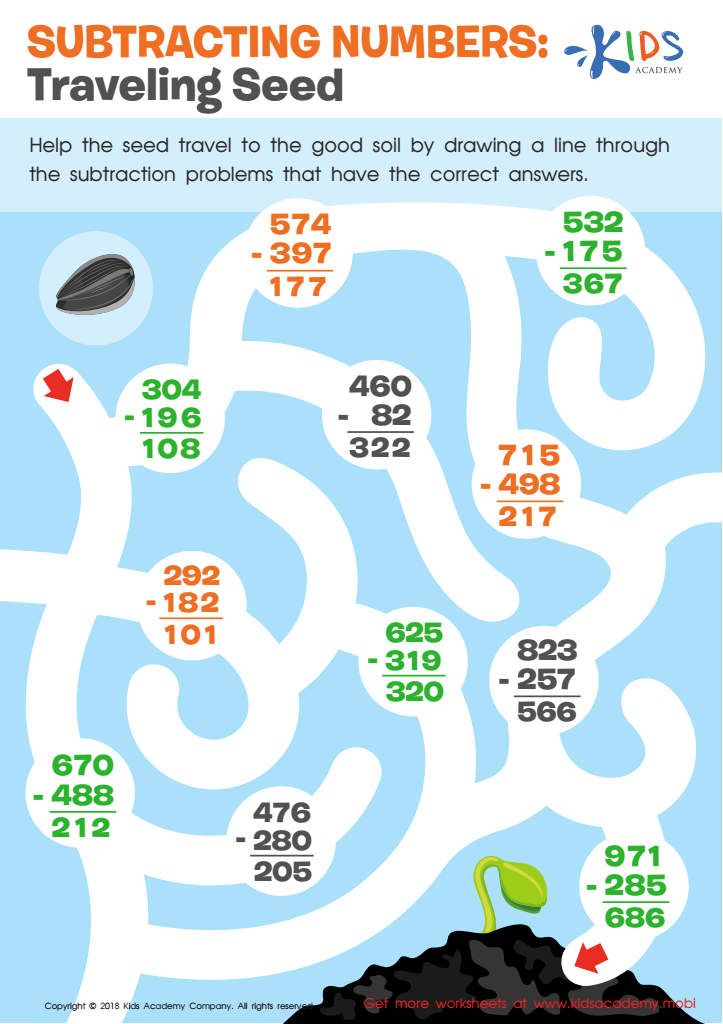

Subtracting Numbers: Traveling Seeds Worksheet
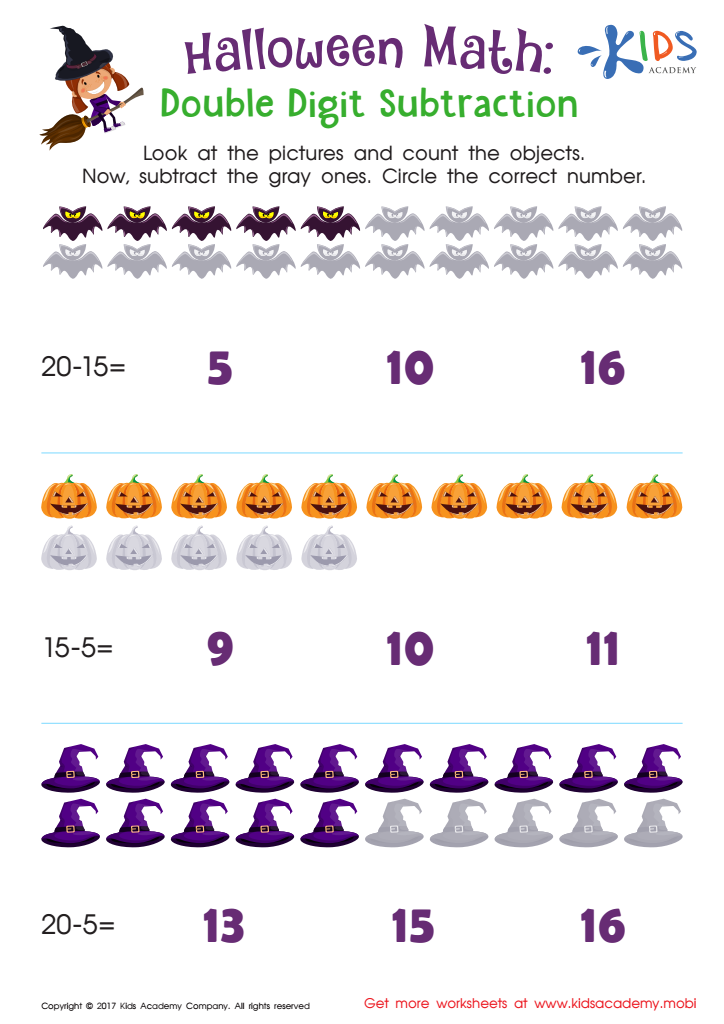

Halloween Math Subtraction Worksheet
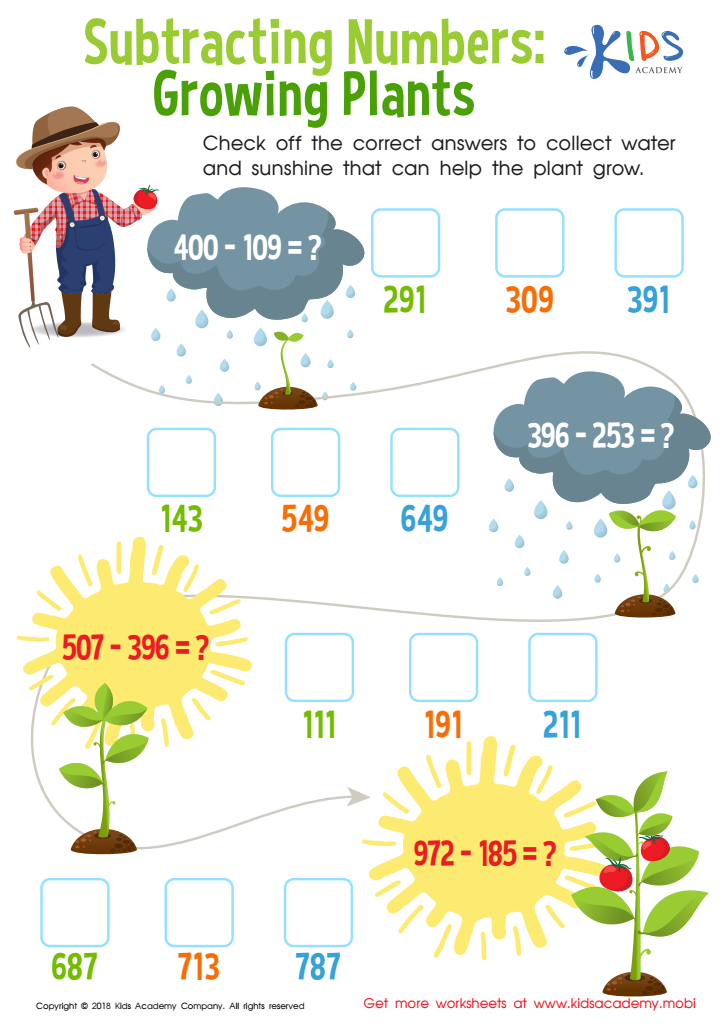

Subtracting Numbers: Growing Plants Worksheet
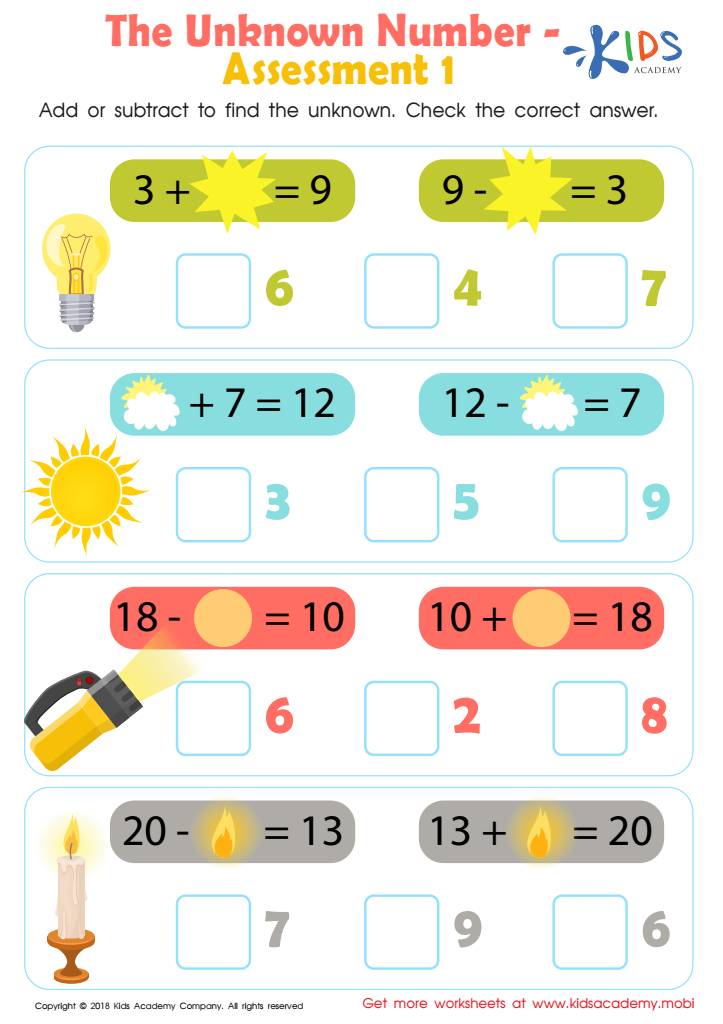

The Unknown Number: Assessment 1 Worksheet
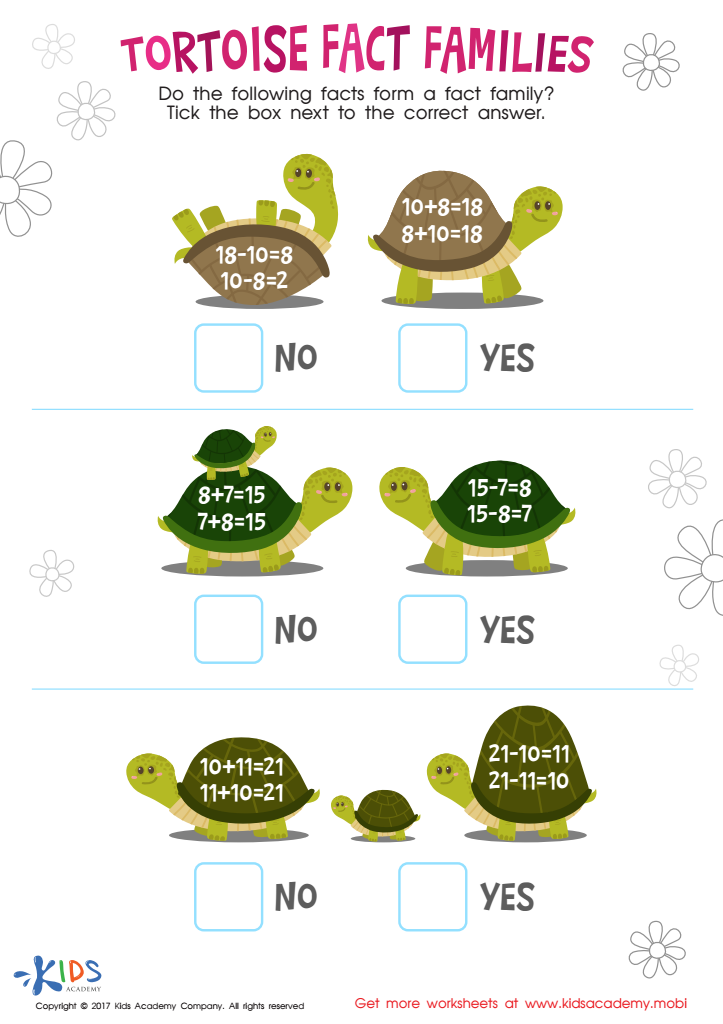

Tortoise Fact Families Printable
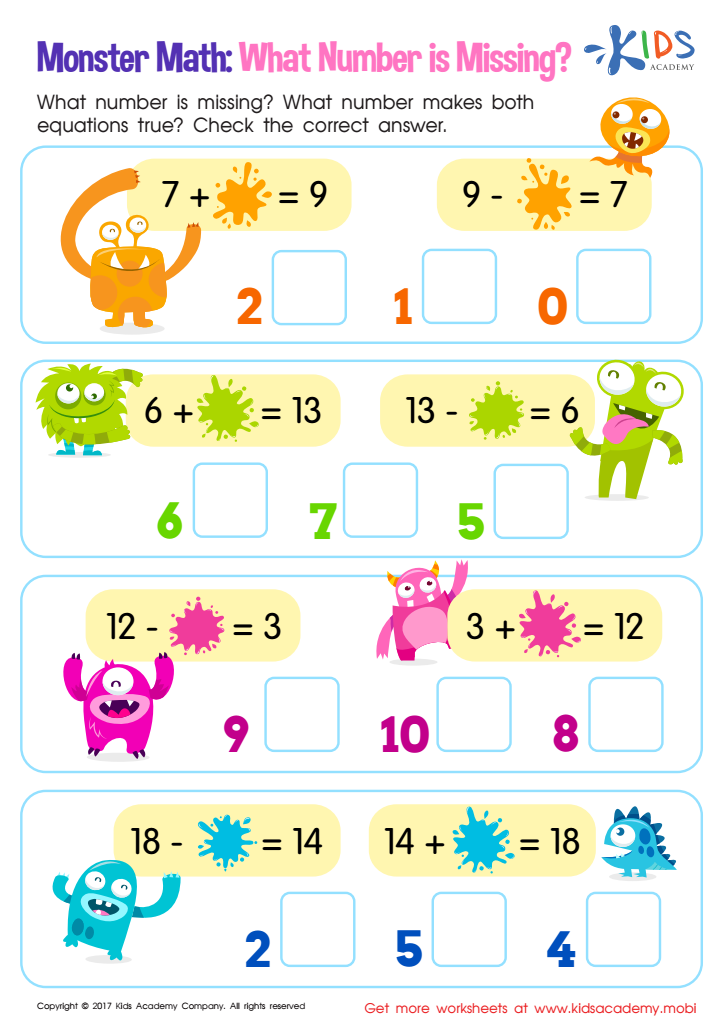

Missing Number: Monster Math Worksheet
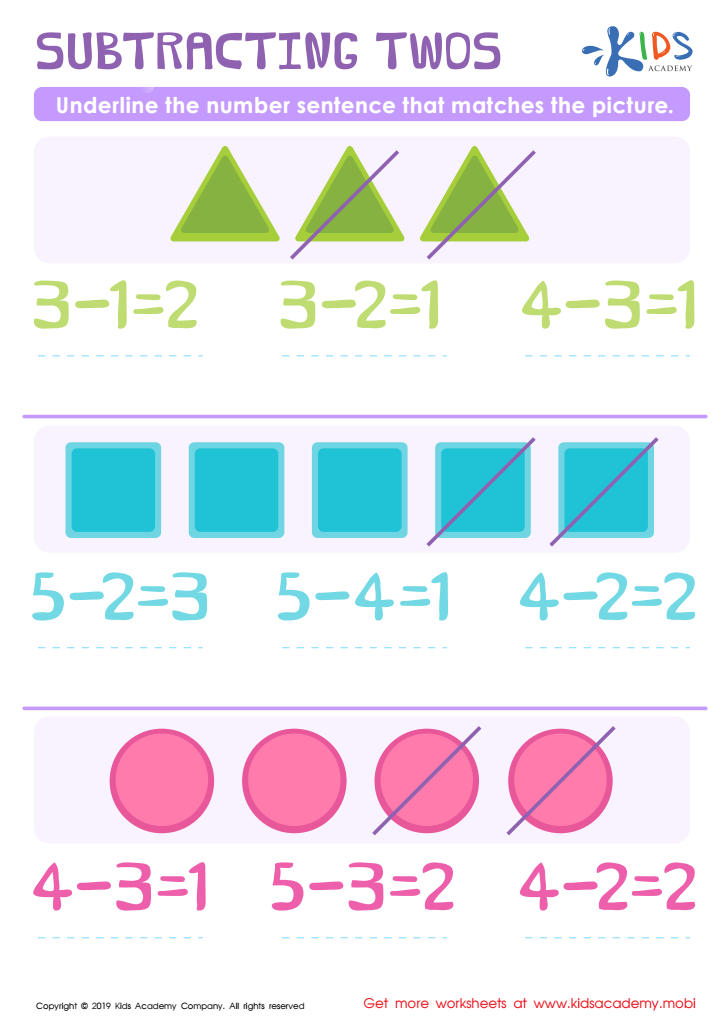

Subtracting Twos Worksheet
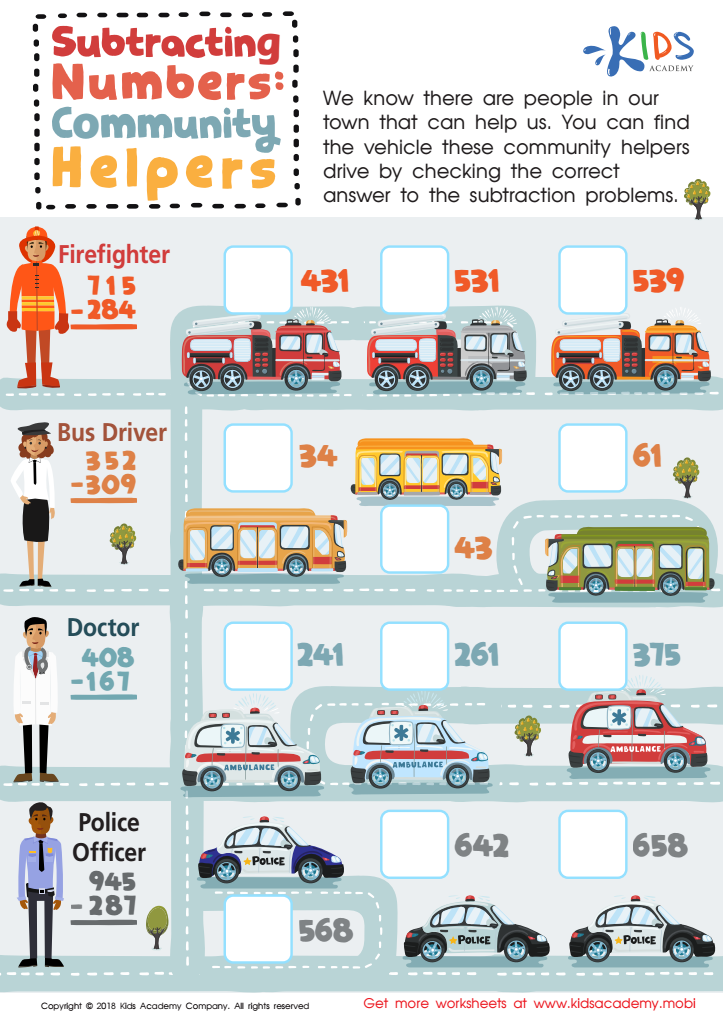

Subtracting Numbers: Community Helpers Worksheet
Basic subtraction skills are fundamental for children aged 5-8 as they lay the groundwork for more complex math concepts and everyday problem-solving. Parents and teachers should prioritize these skills because they enhance a child’s ability to understand numbers and their relationships, which is crucial for succeeding in future math topics such as multiplication, division, fractions, and algebra.
A strong grasp of subtraction helps young learners develop critical thinking and logical reasoning. It fosters confidence and independence, allowing them to tackle daily challenges, such as managing money, sharing, or following recipes. Furthermore, subtraction is not an isolated skill; it is deeply intertwined with other mathematical operations, most notably addition. By mastering both addition and subtraction, children will find it easier to learn concepts like time, measurement, and even geometry.
Investing time in teaching subtraction also supports cognitive development areas including attention, memory, and perseverance. Activities designed to bolster subtractive reasoning often encourage creative problem-solving and collaborative skills if carried out in group settings. In essence, building a solid foundation in subtraction during these formative years enables smoother academic progress and prepares children for real-world situations, making their development more rounded and robust.
Therefore, both parents and teachers should actively engage in nurturing these skills to ensure children achieve numerical literacy vital for academic achievement and everyday life.
 Assign to My Students
Assign to My Students




















